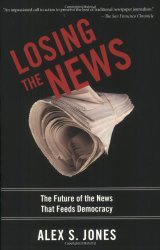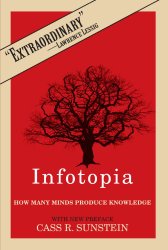Many proclaimed the “end of television” in the early years of the twenty-first century, as capabilities and features of the boxes that occupied a central space in American living rooms for the preceding fifty years were radically remade. In this revised, second edition of her definitive book, Amanda D. Lotz proves that rumors of the death of television …
Media & the Law
This is the first textbook to explicitly integrate both media law and ethics within one volume. A truly comprehensive overview, it is a thoughtful introduction to media law principles and cases and the related ethical concerns relevant to the practice of professional communication. With special attention made to key cases and practices, authors Roy L. Moore and Michael …
This volume considers the depiction of law and legal institutions in J.K. Rowling’s Harry Potter novels. It contains more than twenty chapters by legal academics from the U.S. and abroad. The chapters are organized in five sections: Legal Traditions and Institutions, Crimes and Punishments, Harry Potter and Identity, the Wizard Economy, and Harry Potter as an Archetype. Some …
This easy-to-use guidebook offers an overview of American law that should find a place on the desk of any journalism student or professional journalist. The Journalist’s Guide to American Law provides an overview of major legal principles and issues in practical terms for journalists covering any aspect of the legal system. The book’s organization captures both the bird’s-eye …
Losing the News: The Future of the News that Feeds Democracy (Institutions of American Democracy)
In Losing the News, Pulitzer Prize-winning journalist Alex S. Jones offers a probing look at the epochal changes sweeping the media, changes which are eroding the core news that has been the essential food supply of our democracy. At a time of dazzling technological innovation, Jones says that what stands to be lost is the fact-based reporting that …
Commodity Activism: Cultural Resistance in Neoliberal Times (Critical Cultural Communication)
Buying (RED) products from Gap T-shirts to Apple to fight AIDS. Drinking a ‘Caring Cup’ of coffee at the Coffee Bean & Tea Leaf to support fair trade. Driving a Toyota Prius to fight global warming. All these commonplace activities point to a central feature of contemporary culture: the most common way we participate in social activism is …
More people write for the Associated Press than for any newspaper in the world, and writers have bought more copies of The AP Stylebook than of any other journalism reference. With this essential guide in hand, any writer can learn to communicate with the clarity and professionalism for which the Associated Press is famous. Fully revised and updated, …
Video Game Policy: Production, Distribution, and Consumption (Routledge Advances in Game Studies)
This book analyzes the effect of policy on the digital game complex: government, industry, corporations, distributors, players, and the like. Contributors argue that digital games are not created nor consumed outside of the complex power relationships that dictate the full production and distribution cycles, and that we need to consider those relationships in order to effectively “read” and …
Using the best scientific evidence, Drugs: America’s Holy War explores the impact and cost of America’s “War on Drugs” – both in tax spending and in human terms. Is it possible that US drug policies are helping to proliferate, not prevent, a multitude of social ills including: homicide, property crime, the spread of AIDS, the contamination of …
The rise of the “information society” offers not only considerable peril but also great promise. Beset from all sides by a never-ending barrage of media, how can we ensure that the most accurate information emerges and is heeded? In this book, Cass R. Sunstein develops a deeply optimistic understanding of the human potential to pool information, and to …









